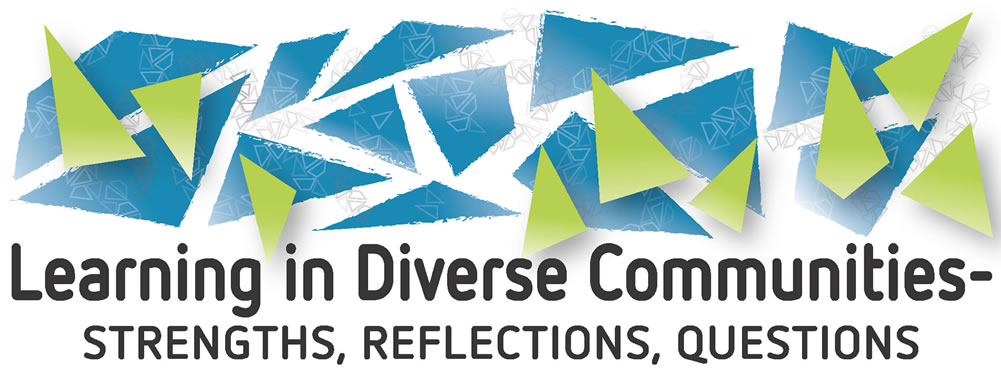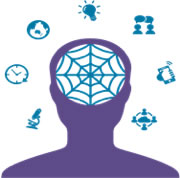August 2018
In this issue
1. From the Co-Presidents
2. Melbourne ACAL Conference
-
Details
-
Pre-conference
-
Free places
3. Workplace Literacy in Australia– A Joint Position Statement
4. AGM – Keep the date
5. The OECD's Programme for the International Assessment of Adult Competencies (PIAAC)
6. Deficit approaches to adult literacy
7. Good news story
8. Literacy and Libraries
9. WAALC AGM
10. WAALC Support for ACAL conference
11. SACAL Conference: Engaging the Modern Learner
1. From the Co-Presidents
We are looking forward to seeing many of you at the Melbourne conference. The team working have done a wonderful job in bringing together a rich collection of voices around the conference theme of learning in diverse communities.
As a committee we are planning a webinar to coincide with the AGM in October, we have set the date and confirmed a speaker, so hope you can join us online.
This month we have been thinking about PIAAC, and the role of data in raising awareness of literacy and numeracy issues. Concurrently. The committee is keen to avoid deficit approaches to adult LN and will be releasing information about the deficit approach later this month.
As winter rolls on, and many regional areas experience ongoing drought we would like to send our best wishes to our rural colleagues.
Daniella and Jo
2. Melbourne ACAL Conference

September 12-14, 2018 • Melbourne Convention and Exhibition Centre
The countdown is on and if you haven't booked a place at the ACAL 2018 Conference in Melbourne then do jump onto the website now. The program is fantastic and the local, national and international perspectives will ensure there is plenty to think about and reflect upon.
In addition to the two full conference days, the pre-conference is exploring the new and emerging role that libraries play in contributing to the adult learning and literacy space. This valuable pre-conference will be held at the Library at the Dock in the heart of the Docklands.
We always find the conference is a valuable time for catching up with as many of you as we can. This is a critical time for us to connect, so we are looking forward to the conference chat and chill which will be held at the Convention Centre on Thursday evening.
Jump onto the ACAL website to see the details of the program and to book your place at the conference.
Free places
A philanthropic grant means the conference has some free places available. Under the terms of the grant these are ony available to Victorian residents and you must apply by August 9 (today!).
Supported places WAALC members
WAALC is offering support to up to five delegates to the ACAL Conference in Melbourne in September.
See below.
3. Workplace Literacy in Australia– A Joint Position Statement

ACAL has been pleased to work with the following groups to call for a new national policy and to work with industry to improve workplace literacy and numeracy practice:
-
The Reading, Writing Hotline
-
The Australian Industry Group (AIG)
-
Adult Learning Australia
-
Community Colleges Australia
4. AGM – Keep the date
The AGM, held virtually, is planned for October 17th at 2.30pm AEST.
The AGM will be followed by a webinar with Rosie Martin. This webinar is looking like a great opportunity to engage and connect, so pencil it into your diaries now. The technology for connecting is advancing all the time and it is great that we are able to stream our meeting straight to your home or work. Please do take advantage of this webinar and the chance for some free professional development. We all need to maintain our currency!
5. The OECD's Programme for the International Assessment of Adult Competencies (PIAAC)

ACAL has been in contact with the Federal Department of Education and Training to clarify the involvement of Australia in the forthcoming round of the PIAAC. Our latest communications from the Department have confirmed that arrangements for Australian involvement are currently under discussion and Australia has advised the OECD that we will be participating in the PIAAC.
PIAAC conducts the Survey of Adult Skills. The survey measures adults' proficiency in key information-processing skills - literacy, numeracy and problem solving - and gathers information and data on how adults use their skills at home, at work and in the wider community.
These surveys and reports have been instrumental in highlighting the issue of adult literacy and numeracy in Australia, and helped to dispel the myth that Australia is a fully literate society. The results were the rationale for why Australia developed its National Foundation Skills Strategy (still available at: https://docs.education.gov.au/node/40861). PIAAC was named as the vehicle for measuring the success of the National Strategy.
Reports are still being produced by the OECD and other participating countries (34 all up now) based on analysis of the rich dataset from PIAAC.
Another new OECD PIAAC based report was issued just this past week about numeracy, and the significant relationship between numeracy proficiency and health. See: https://oecdeducationtoday.blogspot.com/2018/07/adult-numeracy-skills-health-effect.html
Thanks to Dave Tout for this input. Dave is a Senior Research Fellow in Numeracy & Mathematics at the Australian Council for Educational Research (ACER). Dave was appointed in January 2018 by the OECD as the Chair of the Numeracy Expert Group for PIAAC Cycle 2.
6. Deficit approaches to adult literacy
It can be easy to get caught up in the language that sneaks into the programs and policies that engage in literacy education. Language matters. The way we frame our work and our learners is influenced by the words we use.
ACAL has asked our committee to think about different issues in the sector and write a short piece to share some information with our members. A piece about the deficit approach will be available later this month on the ACAL website.
7. Good news story
The Literacy for Life Foundation has received funding to roll out the literacy campaign in Western Sydney.
The Foundation continues to deliver programs in remote NSW towns, including Walgett, Toomelah and Boggabilla and about to start in Collarenebri. To date there are over 190 graduates in eight communities.
The Foundation, in conjunction with UNE, is now conducting research into the impacts of literacy on health, community, law and justice, culture, economy, housing, politics, and educational opportunities. The research itself also serves to increase the capacity of the communities: community researchers are being trained to take part in the longitudinal study.
If you have a good news story please contact ACAL at info@acal.edu.au.
8. Literacy and Libraries
Winter, what a great time for the pursuit of indoor activities, and what better spot than the local library? This year the ACAL Conference includes a pre-conference event which takes place in the Library at the Dock. This event, as well as a few others, have had us thinking about libraries and how we connect with them. Diverse opportunities to engage with audio and electronic books are available from many libraries and this can support learning and access for many students. Do your students borrow online?
The committee is currently working to consider the ways that the LLN community maintains currency. Feel free to reach out to use to share your experiences, we would love to hear from you.
9. WAALC AGM
 Western Australian Adult Literacy Council (WAALC) AGM date is Friday 28th September at 5 pm.
Western Australian Adult Literacy Council (WAALC) AGM date is Friday 28th September at 5 pm.
The AGM will follow the TAFE Symposium to be held at the Northbridge TAFE campus on that date.
10. WAALC Support for ACAL conference
WAALC is offering support to up to five delegates to the ACAL Conference in Melbourne in September. The scholarship will cover travel, accommodation and registration costs. Members have been advised about application requirements - if you think you are a member and missed out, check your junk mail and let us know if you need another copy on info@waalc.org.au
11. SACAL Conference: Engaging the Modern Learner
 Friday, 17 August 2018 11.30am to 7pm
Friday, 17 August 2018 11.30am to 7pm
Flinders University, Victoria Square
Topics of interest include • Technology in the classroom • Social media for learning • E-learning • the student-teacher relationship • Collaborative learning • Lifelong learning • Leadership • Digital natives vs digital immigrants • the modern classroom • Engaging learners • Well-being • Professional development for the literacy facilitator
